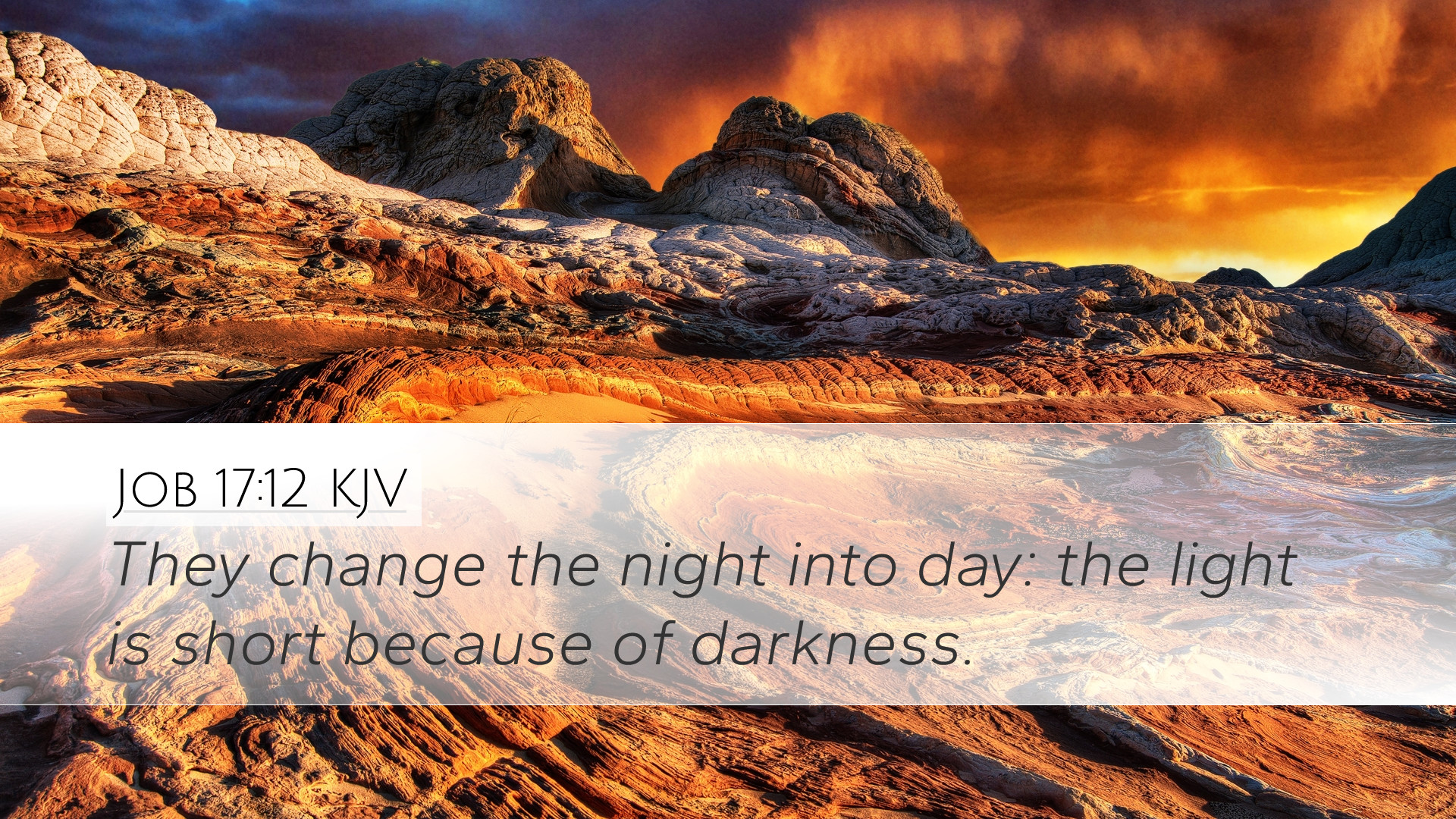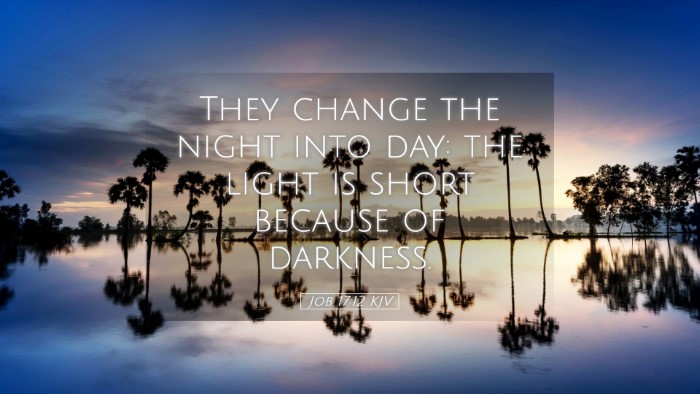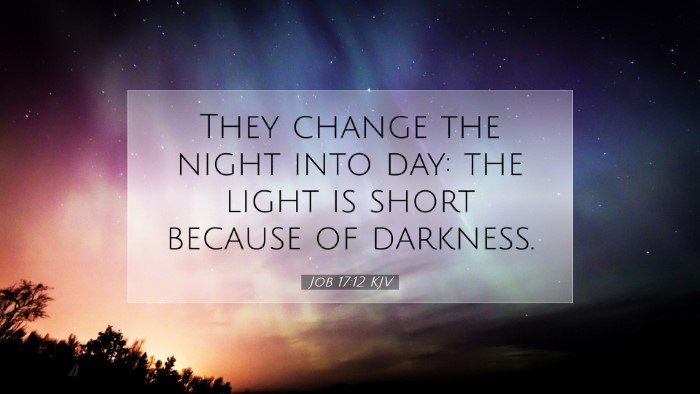Old Testament
Genesis Exodus Leviticus Numbers Deuteronomy Joshua Judges Ruth 1 Samuel 2 Samuel 1 Kings 2 Kings 1 Chronicles 2 Chronicles Ezra Nehemiah Esther Job Psalms Proverbs Ecclesiastes Song of Solomon Isaiah Jeremiah Lamentations Ezekiel Daniel Hosea Joel Amos Obadiah Jonah Micah Nahum Habakkuk Zephaniah Haggai Zechariah MalachiJob 17:12
Job 17:12 KJV
They change the night into day: the light is short because of darkness.
Job 17:12 Bible Commentary
Commentary on Job 17:12
Job 17:12 states: "They change the night into day: the light is short because of darkness."
Introduction
The Book of Job presents a profound exploration of suffering, faith, and the nature of God. In Job 17:12, we find a critical reflection emerging from Job's deep distress. Here, Job addresses the futility of his situation and the overwhelming darkness enveloping him—a theme that resonates throughout the text.
Insights from Matthew Henry
Matthew Henry highlights the metaphorical application of "changing the night into day." He interprets this as Job expressing the idea that his once-bright hope has now succumbed to despair, suggesting that his life has been shrouded in misery that contrasts starkly with the light of day. Henry notes that:
- Desperation: Job feels as if the night of his sorrow has replaced the day of his joy.
- Human Perspective: There’s an acknowledgment of how one can perceive challenges—seeing the night as a struggle against inevitable darkness.
- Faith in God: Despite the overwhelming darkness, Henry suggests that there may still be a glimmer of hope, reflecting Job's underlying faith.
Insights from Albert Barnes
Albert Barnes interprets this verse through the lens of the human penchant for hope. He expounds that:
- Transformation of Perspective: The phrase "they change the night into day" metaphorically stresses how circumstances can abruptly shift in life, altering one’s outlook.
- Human Emotion: Barnes emphasizes the torment Job experiences, which leads him to reflect upon how swiftly perceptions of hope can fade into despair.
- Illusion of Light: He notes that sometimes, even when it seems that light arrives, it may be fleeting and accompanied by darkness.
Insights from Adam Clarke
Adam Clarke approaches the verse with a focus on the philosophical implications of Job's plight. His analysis brings forth the themes of:
- Irony of Light: Clarke points out the irony in Job’s statement—what should symbolize hope (day) becomes just another layer of darkness in the face of his affliction.
- Encouragement through Tribulation: Despite the overwhelming darkness, Clarke suggests there may be a signal of encouragement as Job seeks to navigate his trials and understand their purpose.
- Universal Experience: Job’s lament serves as a commentary on the universal human experience of experiencing night, darkness, and the accompanying struggle for understanding.
Thematic Considerations
The reflections on Job 17:12 through these commentaries reveal several overarching themes:
- The Nature of Suffering: The continued discussion highlights how suffering alters the perception of hope, turning day into night.
- Transitory Hope: The verse continually reminds us that hope can feel transient; it can be easily obscured by the trials of life.
- Endurance of Faith: Faith persists even amidst profound anguish, as Job models for future generations facing their own nights of sorrow.
Pastoral Reflections
For pastors and theologians, this verse serves as an essential reminder that:
- Empathy for Sufferers: Understanding that many may feel the weight of darkness as they experience life’s tribulations.
- Presence of God in Trials: Reminding congregants that, despite feeling that their hope has been diminished, God’s presence remains alongside them.
- Resilience of the Human Spirit: Celebrating human resilience and the capacity to continue seeking light even when surrounded by darkness.
Conclusion
Job 17:12 encapsulates the struggle between light and darkness, hope and despair. Through insights from public domain commentaries, we realize that the struggle Job faces addresses the deepest questions of existence. For believers today, Job’s earnest cry is both a lament and a profound testament to enduring faith amidst suffering. As light and darkness intertwine in our lives, we are called to hold on to hope even when it seems elusive.


